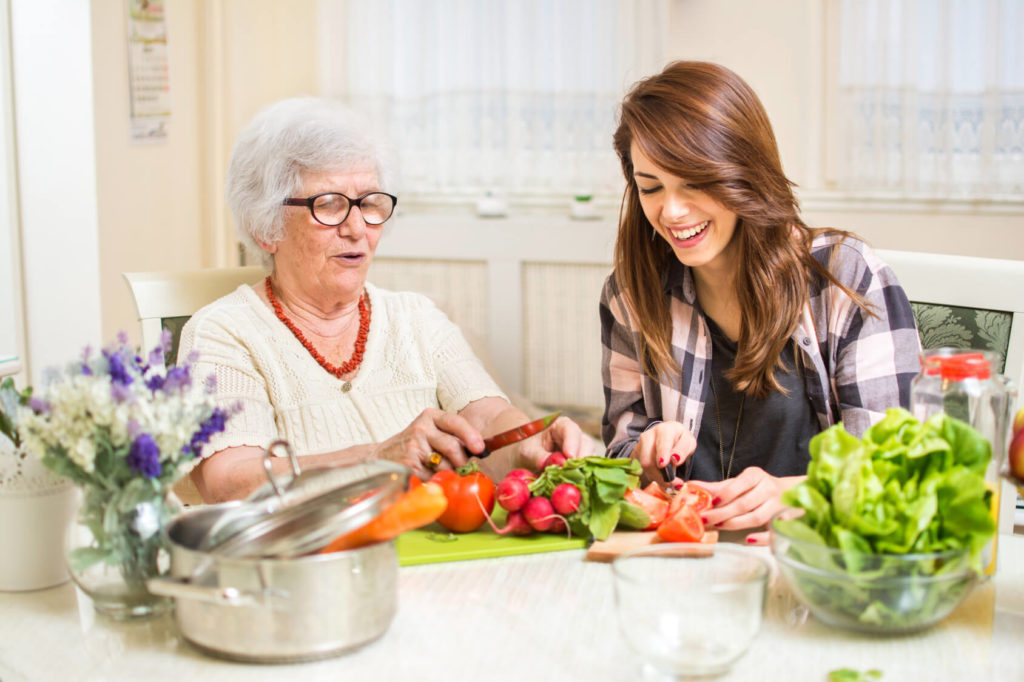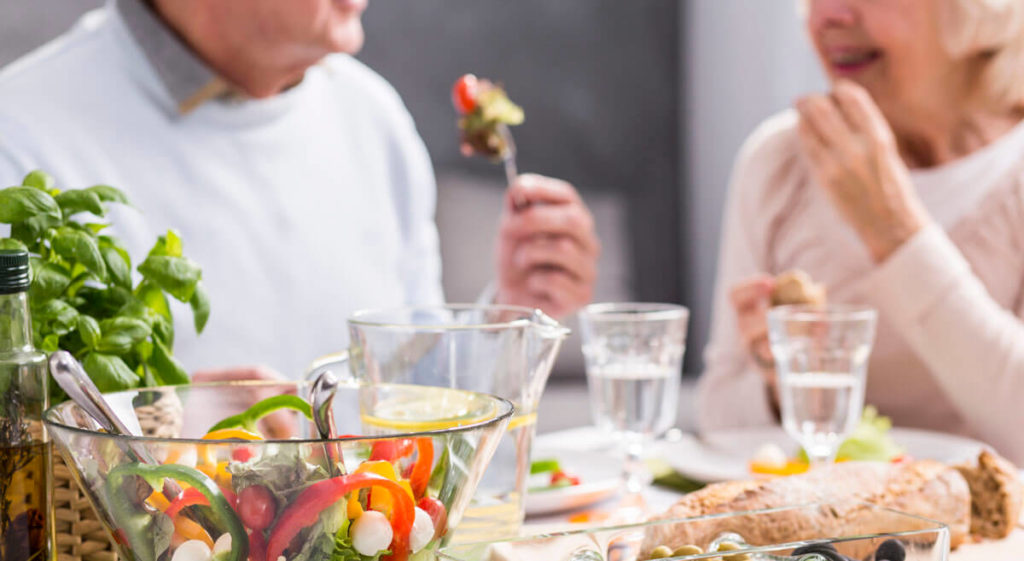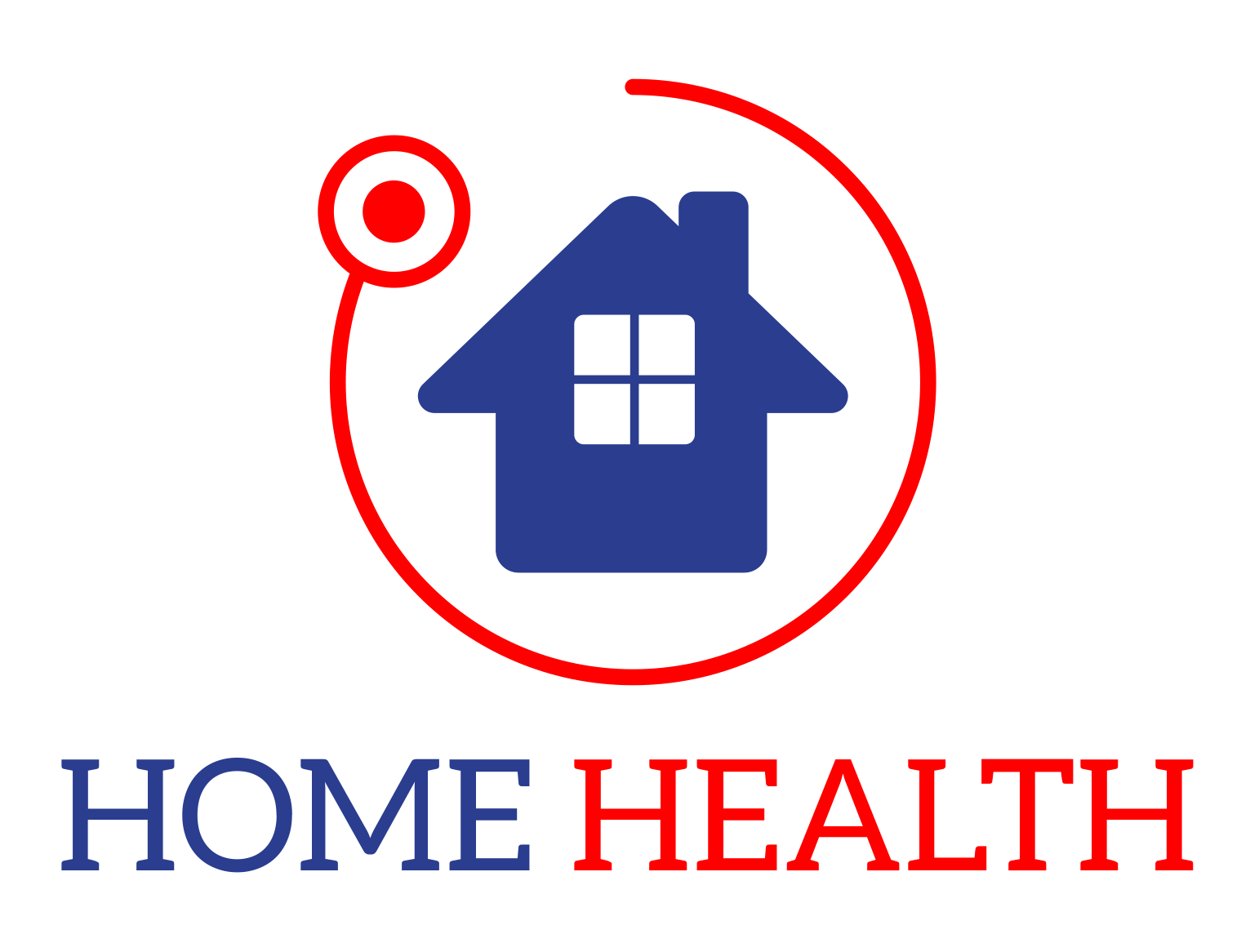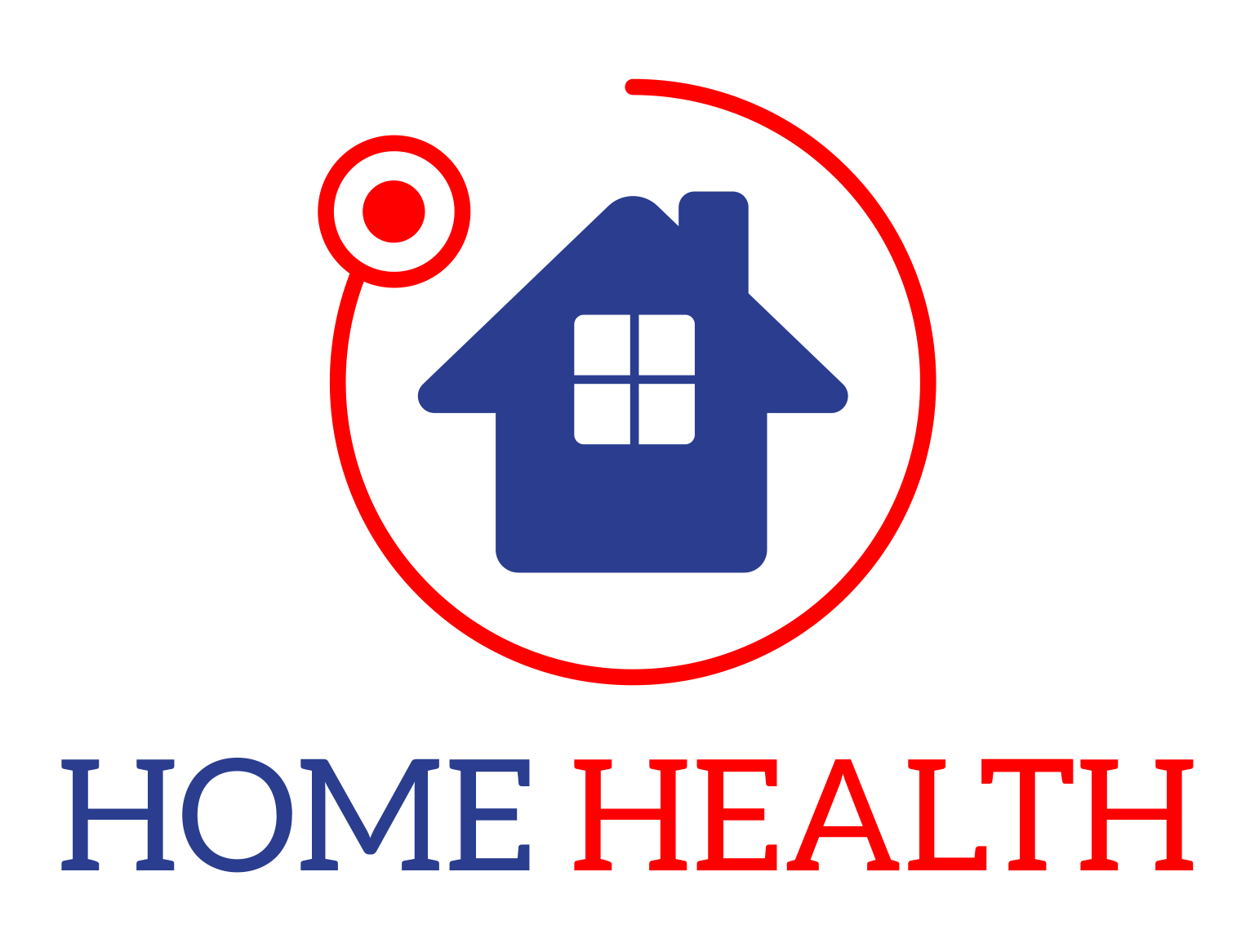
Importance of Nutrition for Seniors
The human body gradually dehydrates and breaks down throughout the aging process. Add in the fact that food becomes more difficult to process and it is easy to understand why plenty of seniors lack the proper nourishment. Some seniors simply do not eat enough as their level of activity significantly declines when aging.
If you have an elderly individual in your life or are a senior yourself, you should understand the importance of nutrition for seniors. The proper nutrition will help your loved one feel better and live a much more fulfilling life. Furthermore, the proper nutrition will also help prevent diseases ranging from type 2 diabetes to heart disease, high blood pressure, cancer and osteoporosis.
Why is Nutrition So Important for the Elderly?
If you are like most people, you have wondered, “Why is nutrition important?” especially in the context of one’s golden years. The food a senior citizen consumes largely shapes his or her quality of life. Those who consume a nutritionally balanced diet enjoy optimal biological functionality throughout the aging process. Proper nutrition for elderly improves excretory system functionality, maintains the optimal weight and also improves wellbeing. Senior citizens with the best eating habits feel better, are stronger and live longer lives.
Encourage the elderly individual in your life to eat a nutritionally balanced diet and he or she will live longer, have fewer health problems and pay less for medical treatment. Add in the fact that the optimal intake of foods boosts the immune system and there is all the more reason to carefully choose the foods and beverages consumed in one’s golden years.
The body relies on nutrients from foods to combat disease. As an example, vegetables and fruits with antioxidants combat free radicals that harm the body. An added bonus is the fact that proper senior nutrition provides the brain with the nutrients necessary for optimal cognitive function. The brain needs hydration, healthy fat and protein to function. The same fuel is necessary for muscle functionality.
If you are still on the fence as to whether it is worth it to prioritize eating healthy, consider the fact that a nutritionally balanced diet promotes healthy digestion. Those who consume nutritious meals find it is significantly easier to relieve oneself with regular bowel movements and avoid diarrhea. Let’s take a look at some of the best food for seniors and snacks for elderly.
Foods Seniors Should Eat
Good food to eat for seniors promotes digestion, cognitive function and overarching biological health. As an example, seniors should focus on consuming foods with meaningful calories as opposed to empty calories. Avoid foods with minimal nutrients and an excess of empty calories such as baked items, candy and chips. Instead, choose foods that have low fat and cholesterol.
Some of the best foods for seniors include vegetables, fruits, whole grains, brown rice, whole-wheat bread, oatmeal, soy/rice milk, lean meats, nuts, beans and seafood. Seniors are also encouraged to consume water throughout the day to prevent dehydration.
How it works
Book your appointment
Your information is safe
Peace of mind
Foods Seniors Should Avoid
Seniors should be mindful of their food consumption, especially when they reach their late 60s, 70s and 80s. In particular, seniors are advised to avoid eggs, poultry and meat that is undercooked or raw. Grapefruit has the potential to interfere with the efficacy of certain medications commonly prescribed to senior citizens.
Caffeine is problematic as it dehydrates the body. Alcoholic beverages also dehydrate the body. Hydration is important for seniors as the body naturally dries out during the aging process.

Daily Calories for Seniors
Senior citizens are encouraged to consume 1,600 calories each day. However, the optimal number of calories ultimately hinges on the senior’s level of daily activity. Older individuals who are inactive don’t need as many calories as those who are active.
Women
Though senior citizens of both sexes are encouraged to eat healthy, there are some differences between the foods that are optimal for women and those that are optimal for men. Women who reach age 50 and older should key in on specific foods to reduce the chances of health problems arising down the line. Female senior citizens should consume calcium to improve bone health. The little-known truth is that one in three women age 50 and older faces a heightened risk of a broken bone as a result of osteoporosis.
Every female senior citizen should know that her body will not tolerate dairy as well as it did when younger so it is in her interest to turn to dark leafy greens for an infusion of bone-boosting calcium. Calcium fortified foods and nutritional drinks for seniors such as orange juice are also helpful. Female senior citizens are encouraged to consume protein to boost muscle mass that will inevitably decline through the aging process. Protein is found in eggs, meat, beans and some plant-based items.
Finally, women should consume their fair shar of vitamin B-12 to boost brain functionality. Vitamin B-12 helps to improve cognitive functions and also enhances the body’s red blood cells. The optimal intake of vitamin B-12 for women who reach age 50 and older is around 2.4 micrograms per day.
Men
A heart healthy diet for seniors can be planned with dinner ideas for seniors each weekend. Spend some time planning your meals for the upcoming week and the stage will be set for healthy eating. Take some time to review the nutritional needs for elderly men and you’ll understand what are the nutritional needs of an elderly men. Invest your time on the weekends planning healthy meals for seniors and it won’t take long to improve your diet and also enhance your wellbeing.
Older men should focus on consuming food with fiber, calcium, potassium, vitamin D and healthy fats. Heart healthy foods for seniors are especially important. Dietary fiber promotes digestive system functionality and also reduces the chances of heart disease and type 2 diabetes. In general, men age 50+ are encouraged to consume 30 grams of dietary fiber per day.
Older men also need calcium and vitamin D to maintain healthy and strong bones. Examples of food with calcium include yogurt, milk, fortified cereals and dark leafy greens. Food with healthy fats that enhance heart health include avocados, almonds, walnuts and extra virgin olive oil.
Men who boost their intake of potassium reduce their risk of high blood pressure. Male senior citizens can get potassium from sweet potatoes, bananas, white beans and spinach.

